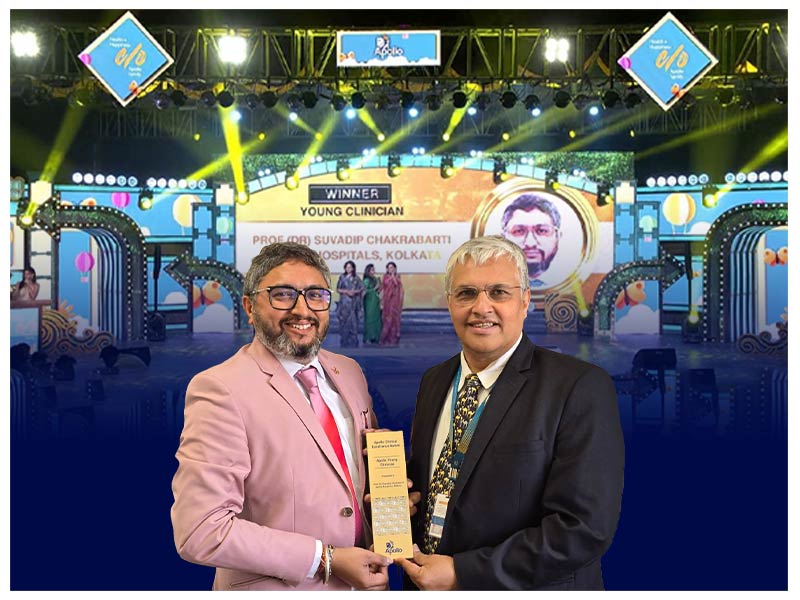Thyroid Cancer – Overview
Thyroid cancer develops when abnormal cells begin to form in the thyroid gland. Thyroid cancer, unlike other cancers, is frequently discovered in its early stages and can be treated effectively by Dr. Suvadip Chakrabarti, who is considered to be the best thyroid cancer doctor in Kolkata.
What Are Its Signs and Symptoms?
Thyroid cancer creates a variety of symptoms that the patient cannot dismiss as minor annoyances. The following are some of the most common signs and symptoms:
- A lump or a protrusion in the neck is the most prevalent symptom
- Swallowing difficulties
- Breathing difficulties that are frequently accompanied by a wheezing sound
- Changes in voice tone or hoarseness
- Irritating cough that isn’t caused by cold
What Are the Various Thyroid Cancer Types?
As per the oncologist in Kolkata, thyroid cancers come in a variety of forms:
- Papillary Thyroid Cancer – It is the most frequent form of thyroid cancer. It is prevalent in both children and women. Radiation exposure in the past could be a factor. Environmental factors are the most common cause of papillary thyroid cancer, which is not inherited. It’s referred to as a well-differentiated thyroid cancer with a high cure rate.
- Follicular Thyroid Cancer – The second most frequent type of thyroid cancer is follicular thyroid cancer. It’s considered a well-behaved thyroid cancer that has a slightly higher risk of spreading than the papillary thyroid cancer.
- Anaplastic Thyroid Cancer – This is one of the more aggressive kinds of cancer. It’s most common in people who have had a thyroid swelling for a long time. It has a proclivity for spreading quickly both locally and to distant organs.
- Medullary Thyroid Cancer – Medullary thyroid cancer is a rare type of thyroid cancer that is often inherited. Some of the incidents involve small toddlers. It’s treatable with the right procedure.
What are the Surgical Treatment Options for Thyroid Cancer?
Thyroid cancer treatment options in Kolkata are determined by the type and stage of the tumour, as well as your overall health and preferences. The majority of thyroid malignancies are treatable.
Thyroid cancers that are very tiny and have a minimal risk of spreading throughout the body may not require treatment immediately. Instead, consider active surveillance, which involves regular cancer monitoring.
Thyroid cancer is almost always treated with surgery. The type of thyroid cancer, the size of the tumour, whether the cancer has progressed beyond the thyroid gland, and the results of an ultrasound inspection of the entire thyroid gland will all influence the operation your surgical oncologist recommends.
Thyroid cancer is treated with the following procedures:
- Surgery that involves the removal of whole or part of the thyroid gland (thyroidectomy): A total thyroidectomy (removal of all thyroid tissue) or a partial thyroidectomy (removal of most thyroid tissue) are two options for removing the thyroid gland. To limit the danger of harm to the parathyroid glands, which help regulate calcium levels in your blood, the surgeon generally leaves small rims of thyroid tissue surrounding them.
- Surgery involving removal of a piece of the thyroid gland (thyroid lobectomy): The surgical oncologist in Kolkata removes half of the thyroid during a thyroid lobectomy. If you have a slow-growing thyroid cancer in one section of the thyroid and no suspicious nodules in other parts of the thyroid, it may be advised.
- Removal of lymph nodes in the neck (lymph node dissection). The cancer doctor may also remove neighbouring lymph nodes in your neck when removing your thyroid. These can be examined for cancer indications.


